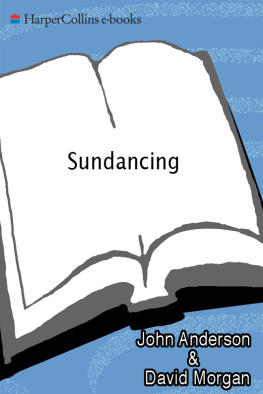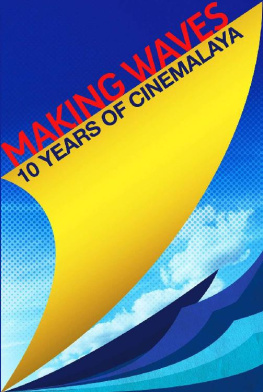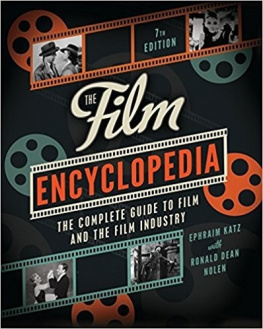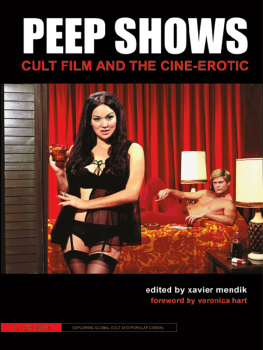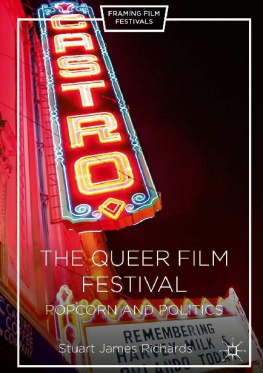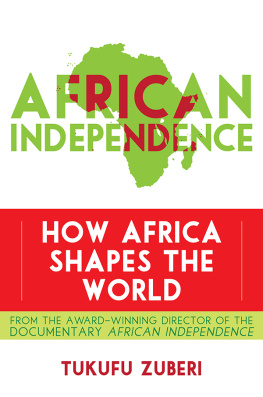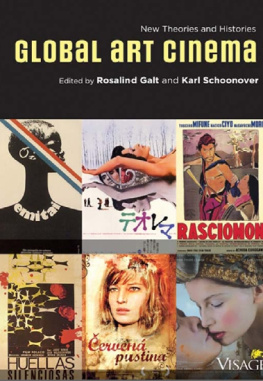Table of Contents
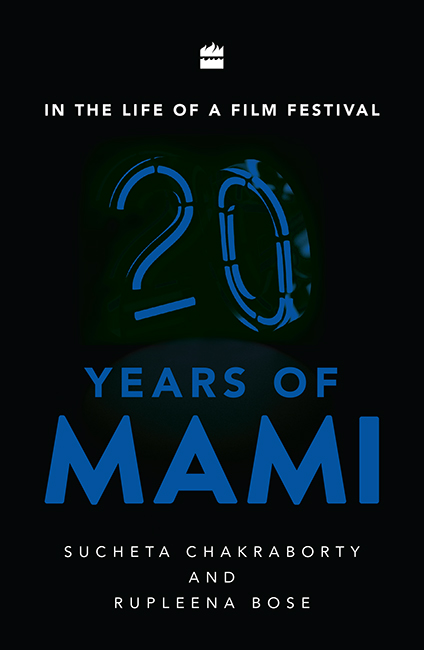
In the Life of a Film Festival
The Mumbai Academy of Moving Image (MAMI) is a public trust that organizes the annual international film festival in Mumbai known as the Mumbai Film Festival (MFF). MAMI aims to foster a climate of good cinema.
In the Life of a
Film Festival
20 YEARS OF MAMI
SUCHETA CHAKRABORTY
AND
RUPLEENA BOSE

Contents
In the sky of the cinema, people learn what they might have been and discover what belongs to them apart from their single lives.
John Berger
Cinema is the most beautiful fraud in the world.
Jean Luc Godard
I n the hall of Liberty Cinema where the ceiling stretched high above and glittered like a sparkling sky, as a stream of people hustled in, it felt as though time stood still. The scene must have been exactly the same decades ago at the opening of a movie when the audience flocked in, ready to be mesmerized when the hero burst onto the screen, promising the victory of good over evil. It was the first time I was attending the Mumbai Film Festival.
I had grown up around film clubs and film festivals. In the cinema city down south, once called Madras, where I lived, schools have film bonanzas where young adults can watch three to four films over a day termed cinema day. In the university where I studied and then taught, there were film screenings and film festivals in an auditorium where film-hungry students watched all of Pedro Almodovars films from expensive DVD sets acquired from a parents Bangkok trip. The colourful photoshop poster we put up outside screening rooms said film festival, but we did not know at the time that film festivals could actually offer the privilege of listening to Almodovar after a screening of a hot favourite, All About My Mother. Film festivals were events that were rare and hearing a film director was a privilege, certainly not easily accessible for regular college-going, class-attending students.
When I was in Delhi as a student in the late nineties, the international film festival was housed there for only a few years. But by the time I was a masters student slowly venturing into film studies, the citys only film festival, the International Film Festival of India (IFFI), moved to Goa. But then there was the Osians Cinefan Film Festival of Indian, Asian and Arab Cinema, one that got bigger just as my interest in cinema grew. The Osian Cinefan Film Festival introduced Delhi to cinema from Asia and it also changed our mindset that cinema and the serious discourse around it was essentially around European cinema. And it opened up the world for me and other students like me. Osian also introduced us to Wong Kar Wai and I felt at home in an alien city that seemed to be mine in a way I could not understand.
As I watched stories involving people caught in an urban world, it reflected our own experience of living in a modern fast-changing Indian city. Where unlike the older familiar structures, living was lonely and yet completely desirable in the freedom that the city offered to young people who were finding new identities. The cinema from Asia and the city cinema from Asian cities changed the way cinema was thought and talked about. There was a new language, one that seemed to represent us rather than the city cinema of Europe. And all this realization was brought to some of us thanks to the magic of a film festival.
In the few years of Osian Cinefan Film Festival, there was an intangible community of film-watching people. The ones we met running from one auditorium of Siri Fort to another; we bonded, strangers falling quickly and easily into conversations about the treasure house of Asian cinema that held us captive over ten days. After a short stint, Osian ended and with it the collective viewing of films that made possible unlikely friendships and odd relationships, tied by the characters of the film you had just seen and had to discuss. For years I lamented the lack of a film festival in Delhi, the allure of escaping into another life in another continent for a brief while.
It was only around the week before Diwali of 2017, I rediscovered the film festival experience this time in Mumbai where, for that one week you end up living in another world of films that were distinct, each appearing with its own universe. And that is the charm of film festivals to me. They can break the pattern of everyday working lives into days filled with extraordinary stories from people we normally wouldnt encounter. Film festivals remind us of the big screen as a magic window where everyone is transported into countries, languages and realities different than our immediate one.
Mumbai is a city of work and livelihood, a city that is inescapable if you belong or aspire to work in the entertainment industry. It is a city I visit often and wonder about the stories that pass me by in the small encounters towards the few busy days of work. It is a city one sees and hears on screen, but last year in my first film festival experience of Mumbai, I found something I had never encountered before.
I found leisure and time in the hands of at least a bunch of people kept aside for watching films over a week in their lives. I found a city in the auditoriums and queues, where people did not just talk about their aspiration of being in movies, but the experience of watching them that told other peoples stories.
Writing about a film festival entails slowly uncovering bits of the city in which it lives, in the light of the story that you inhabited in the dark auditorium. In that light, this time Mumbai seems different. Mumbai seemed ready to embrace realities and narratives that was far removed from its everyday. It seemed like it was housing a secret city where people had time and leisure set aside for a week to indulge in cinema viewing. Or most likely Mumbai seemed ready to let it be imagined into a different kind of a city by storytellers like me.
I didnt know then that I would trace the short history of a film festival that was going to turn twenty soon. But when I looked at the two-decade journey of the film festival, which was steadily building its community of film viewers, the history of the festival dated back to a time when the old city had been renamed. It was not a story about the entertainment industry but it was simply a story built around film lovers and their bid to make leisure to watch cinema from across the world. It was an attempt to remind the city of little time that cinema needed time and love to experience and not just to make. In the history of the beginnings of the present festival was the story to give a new cultural event to the city of cinema.
And in a way, the story of the Mumbai Academy of Moving Image, which is the story of the Mumbai Film Festival, is entwined with the life of the bustling metropolis that is its home.
F ilms are about people and their relationship with narratives. Narratives that stealthily enter the lives of spectators in dark auditoriums, and leave them with people or characters they befriend in the course of these interactions. Characters dont remain trapped in the white screens of a theatre. In the journey of the audience and the story new relationships are forged. Cinema has the power to change the deepest core of an individual. And it is such cinema from unknown worlds and untravelled lands that is showcased in the course of a film festival. The emergence of film festivals is connected with the story of cinema and its magic that took over the early years of the twentieth century.


